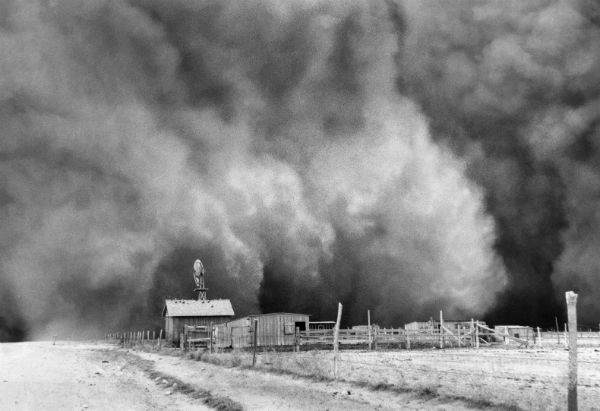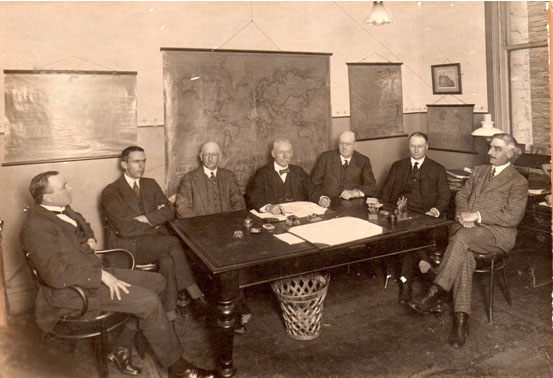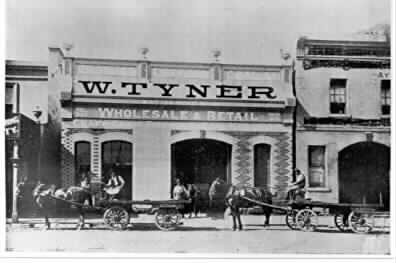A History of the Grain Industry Association of Victoria Inc.

Our Story
The Grain Industry Association of Victoria (GIAV) has been at the heart of Australia’s grain trade for over a century — and we’re just getting started.
Founded in 1917 as the Melbourne Corn Exchange, GIAV began as a hub for grain merchants to connect, trade, and sort out matters that mattered. Back then, trade was all about bagged grain, horse-drawn carts, jute sacks and long ocean voyages. Grain was bought on farms or at railheads, loaded onto ships in Melbourne, and sent across the globe — usually to Britain. Merchants took full ownership and full risk. No emails, no contracts — just handshake deals and reputation.
Grains Through the Ages

The 1930s brought seismic change:
- Small sailing ships made way for steamers
- Bulk handling replaced bagged grain
- Big merchants grew, small ones faded
- And with motor vehicles taking over, oats lost their shine
Around the same time, grain production surged — sometimes too fast. The 1930 drought led to record wheat planting and serious environmental damage in the Mallee, fuelling Melbourne’s infamous dust storms.
With global overproduction and plummeting prices, confidence collapsed. Farmers were hurting. That’s when the push for more orderly marketing took off — and in 1939, the Australian Wheat Board was officially formed under wartime powers. Later came the Australian Barley Board.
From Monopoly to Market Freedom
By 1948, growers had taken control of the AWB. The old-school grain merchant model was fading. But we adapted.
Through the decades, quotas, Section 92 trade, and deregulation reshaped the industry. By 1984, permit-based wheat trading opened new doors. And since then, the industry hasn’t looked back.
Today, Victoria’s grain scene is diverse and dynamic:
- Cereals
- Pulses
- Oilseeds
- Processed products
- Export markets in developing nations
Much of this grain is now shipped in containers — still packed in sacks, but sadly, the jute has gone.
A New Era for GIAV

In 1992, we became the Grain Industry Association of Victoria Inc — a name that reflects our broader, more modern role.
Our membership has grown and evolved to include:
- Grain traders
- Freight and logistics operators
- Bulk handlers
- Grower groups
- Industry service providers
Looking Ahead

We’re proud of our heritage — the merchants, the jute sacks, the shipping days — but we’re even prouder of what’s ahead.
GIAV is a forward-thinking, industry-connected organisation, with deep ties across the grain supply chain. From growers to global markets, from bulk handlers to boardrooms — we’re helping shape the future of Victorian grain.
Join us on the journey. Be part of the next century of grain innovation.
WILLIAM TYNER’S GRAIN AND PRODUCE STORE
SOME HISTORY OF A GIAV MEMBER

Contributed by Michael Wood October 2014
This photograph shows William Tyner’s Grain and Produce Store in High St Malvern, a few doors down from the corner of Glenferrie Rd and High Street near current day Georgio’s restaurant. The photo was taken around 1900.
This store distributed animal feeds including hay and grain to the local horse owners and dairy farmers in the outer suburbs. Animal feed stores in Malvern and Armadale were essential support to the transport system which was mainly horse drawn cart.
I grew up in Glenferrie Rd Malvern. I remember the Clydesdale Horses carting fresh milk around to homes in glass bottles from Woodmason’s Dairy behind the north east corner of Malvern and Glenferrie Rd in the late 1960’s up to about 1973. It is likely that Tyners supplied feeds and hay to this dairy.
William Tyner started up the High store in about 1898. In about 1916 he went on to pursue a career in local politics (I’m told perhaps in Brighton). His brothers James and Ralph took over the High St business. Ralph Tyner was President of the Grains Industry Association of Victoria in 1948 -51.
One of his sons, Boyd Tyner, went on to establish lucerne chaff mills in Newlyn and other small towns north east of Ballarat. Boyds’ son Graeme Tyner still owns Tyner and Sons Grain Merchants and now operates the business from his Glen Waverley office.
